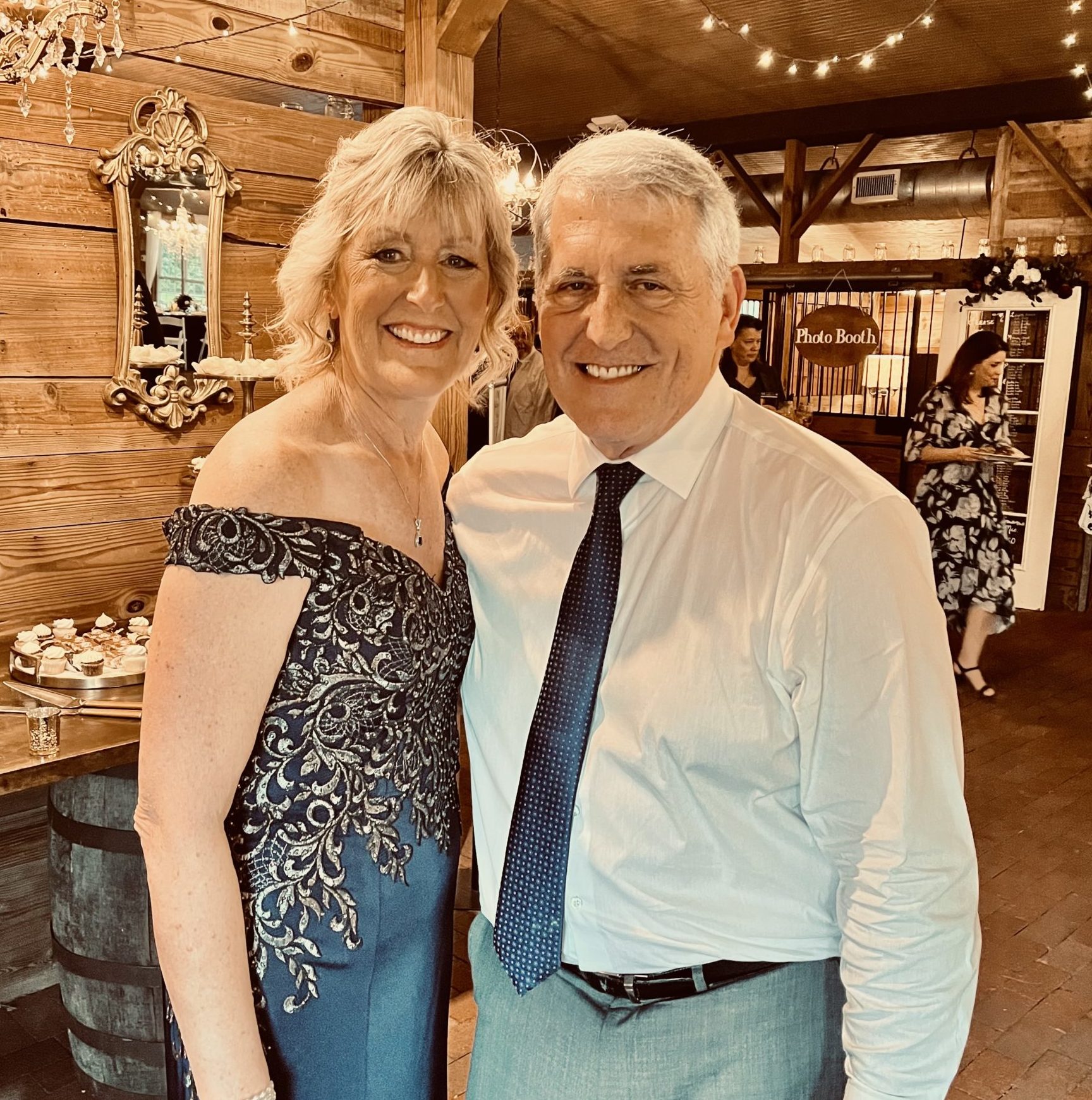By Kent Smith, lung cancer caregiver, advocate and GO2 for Lung Cancer Phone Buddy
When my wife Debra was diagnosed with lung cancer in 2018, we were in shock. She had been having issues with her hip, which, after several weeks of physical therapy, didn’t resolve. An MRI revealed a spot in her hip and after hip surgery, we were told it was lung cancer. It absolutely blew our minds that something that had manifested in her hip was stage 4 lung cancer.

Accepting a lung cancer diagnosis
It took a few weeks for the news to set in. Even now, I tell my “buddies” through GO2 for Lung Cancer’s Phone Buddy Program that accepting a lung cancer diagnosis like this is probably the most challenging part. Debra is an elementary school teacher and, to our knowledge, had never been exposed to any of the environmental factors typically associated with lung cancer. She’s never done anything to put herself at risk. How does someone like that end up with stage 4 lung cancer?
She actually had a tough time telling people in the beginning because of the stigma associated with the disease. We both felt like people were going to blame her for her diagnosis. The stigma is so damaging for every patient and for their loved ones.
Scanxiety and the unknown
Debra started on targeted therapy (Tagrisso/osimertinib) around the time of its initial approval as a first-line treatment for lung cancer and has been doing very well since. Post-diagnosis, we promised each other that we would keep our lives the same for as long as possible and that has pretty much held true. However, now we live in three-month segments between scans—anxiously waiting for the next set of results. We have started calling the emotional run-up to these scans “scanxiety.” About six months ago, she had several spots pop up in a scan and received stereotactic radiation for those large enough to treat.
The reality for people living with lung cancer and their loved ones is that the situation is going to change again and again—but how you’re addressing change and challenges can evolve. I’m an engineer by trade, so I’m comfortable with the technical information and research related to lung cancer. The emotional aspects can be challenging for me, though I think that I’ve developed great skills in that area over the past three plus years.
The caregiver experience
No one—whether patient or loved one—will ever be “ready” for a lung cancer diagnosis. My wife and I were always close, but her diagnosis and my ability to support her through it has really deepened our relationship as a couple, and with our kids and their spouses. Our whole family has grown much closer and that has been a great source of support for me.
As a lung cancer caregiver who has faced many challenges the past few years, I know that any information I can provide to others in a similar situation could be helpful. Through the Lung Cancer Registry’s caregiver survey, I’ve shared my own experience and have actually found it very cathartic, knowing that any information I can provide as caregiver is going to help other caregivers. For example, if there was a scary scan or a tough day, I put it in the survey and it seems to take a weight off my shoulders. Plus, by participating in the survey, I’m contributing to research to help better understand and support caregivers.
I love that lung cancer caregivers are now being looked at in the same vein as people who have been diagnosed with lung cancer. If there’s one thing I’ve learned in these past few years, it’s that everyone needs help at times. I am very excited about the kind of support community that can be built for lung cancer caregivers using a survey like this as the foundation.
The Lung Cancer Registry’s caregiver survey can be a powerful tool to manage the complex feelings and continual change that comes with a loved one’s lung cancer care journey. Learn more and sign up today.

Thanks caregiver and my Phone buddy. Your support and advice has certainly been a help to Sandy and me.